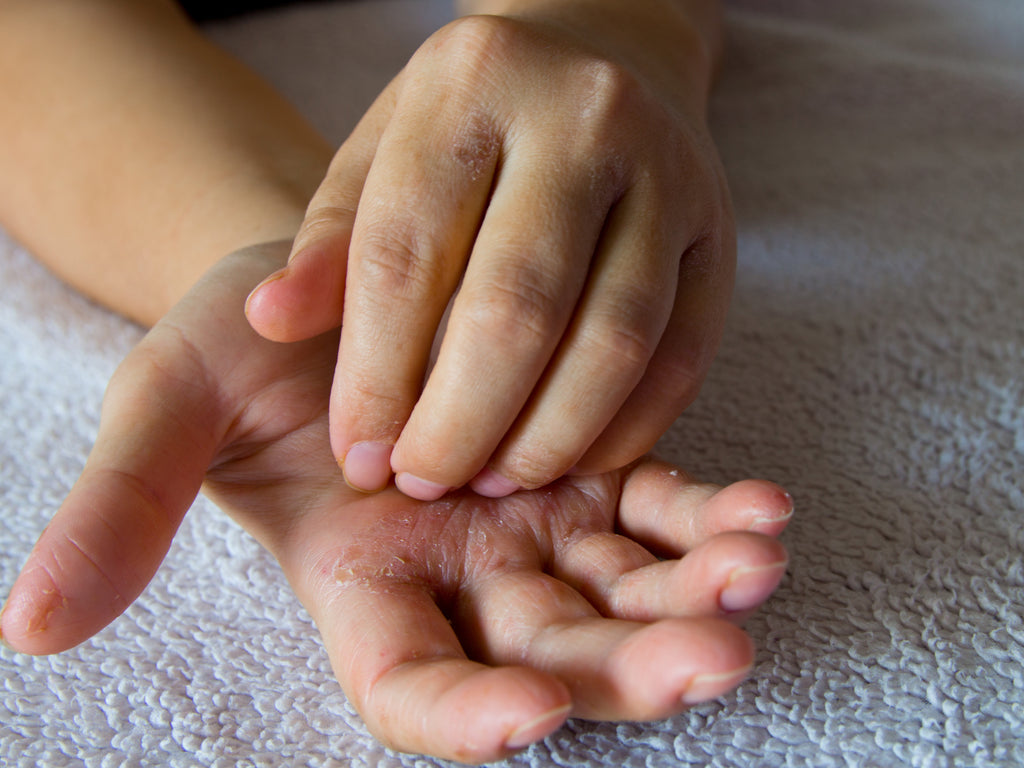Hand sanitiser has become one of life’s constants this year, and is likely to continue to be in our lives for a good while yet! But what does it do to our skin?
Any hand sanitiser needs to be at least 60% alcohol to be effective against viruses*, which is a pretty potent brew.
The ethyl or isopropyl alcohol used to make sanitiser kills viruses by dissolving the bonds which hold the tiny microbes together, rendering it powerless to infect you. The alcohol is usually put into a gel base (often with perfumes, colours or thickeners) to make it easier to spread over your skin, covering every part of your hands, but with too much gel and not enough alcohol, there isn’t enough to be effective.
So you need a lot of alcohol in the mix to nix the virus, but the more alcohol used, the worse it is for skin.
Why?
Because the same property of alcohol that means it can dissolve the fatty bonds of the virus also dissolves the fatty mortar of the skin’s defensive barrier against the outside world. With the barrier compromised, skin loses the vital moisture it needs to stay healthy, and starts to dry out, which can lead to it getting itchy, inflamed, or infected.
If you’re prone to eczema or psoriasis, and your hands are already sensitive and sore, the alcohol in sanitiser can really sting if you put it on any areas of broken skin.
A faulty barrier will also let external irritants in under your skin, so all kinds of other substances (pollen, pet dander, household cleaning products) can get into your bloodstream, and set off an inflammatory reaction - which of course leads to yet more itching.
It’s a difficult situation: the high alcohol content is necessary to kill the virus, but it can damage the skin it’s trying to protect. Add to this any irritant perfumes or dyes added to make the formula palatable but which can trigger inflammation on sensitive skin, and you’re left with a highly irritant substance.
So what can you do about it, given the necessity of hand sanitiser in this current time?
First, remember that hand sanitiser is the second best choice for cleaning your hands, after washing with soap and water. Many people with eczema, or dry, sensitive skin, find that washing for at least 20 seconds with warm water and their favourite hand wash will do the job very well, so long as they use a scent-free, sulphate-free, soap-free cleanser (like our Natural Shampoo & Body Wash)! Scent, SLS and high-alkaline household soap are all irritants themselves, so lessen your chance of drying out your skin by using a wash that suits you and your own unique skin.
If you do not have access to hot running water, hand sanitiser is the next best option.
- Find one with at least 60-70% alcohol
- Rub onto non-greasy hands (if your hands are oily or dirty, you will need to use soap)
- Let the sanitiser dry completely
- Apply a generous amount of emollient balm or cream
For more information about cleaning hands if you’ve got sensitive skin, see our blog Is Hand Sanitiser Safe For Eczema?
*Balmonds sanitiser contains 70% alcohol
---
Recommended products:
Balmonds Natural Shampoo & Body Wash with calendula and nettle, £19 for 200ml
Balmonds Skin Salvation with hemp and beeswax, from £7.99 for 30ml
Balmonds Intensive Hand Cream with hemp, sea buckthorn & chamomile, from £10.99 for 50ml
Balmonds 70% Hand Sanitiser Gel with tea tree and lemongrass (£8 for 100ml)

